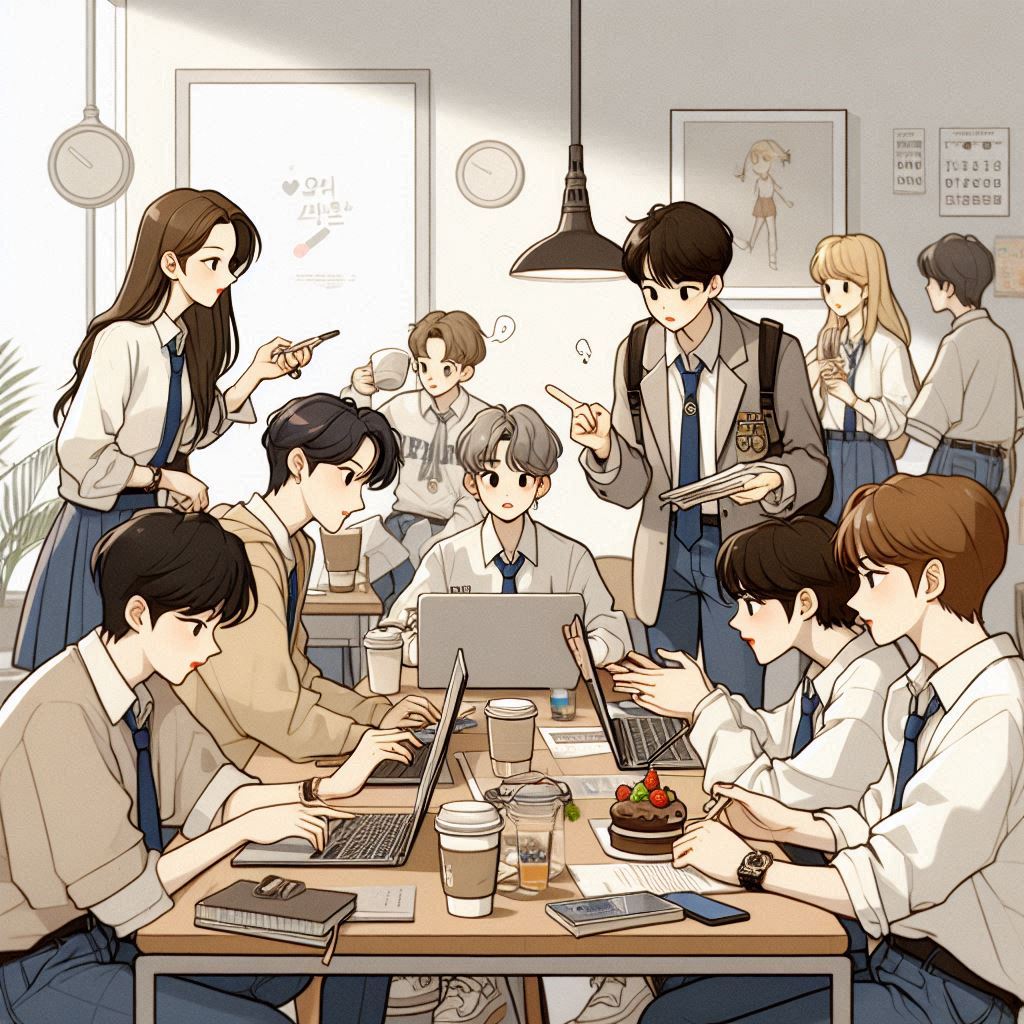2024. 11. 18. 10:59ㆍModern Korean Society & Tech
Understanding Korean Workplace Culture: A Guide for Foreigners 🌏💼
Working in Korea can be an exciting yet challenging experience for foreigners. Korean workplace culture is deeply influenced by the country’s history, traditions, and rapid economic development. Whether you're planning to work in Korea or simply curious about the culture, understanding these unique dynamics can make your experience much smoother and more rewarding.
Let’s dive into what makes Korean workplaces unique, how to navigate them, and what you can do to thrive in this environment! 🧐✨
1. The Importance of Hierarchy in Korean Workplaces 📊
Korean workplaces are strongly influenced by Confucian values, particularly the concept of hierarchy. Age and rank play a significant role in workplace interactions.
- Seniority Matters: Addressing colleagues with respect based on their rank is crucial. Titles like "Manager" (과장님) or "Director" (부장님) are commonly used instead of names.
- Group Decisions: Decisions often involve input from senior employees. As a result, junior staff may hesitate to voice their opinions unless prompted.
- Respectful Language: Using formal speech (존댓말) is essential, especially when speaking to higher-ranking individuals.
Tip: Don’t be afraid to observe and mimic your colleagues’ communication style at first. Politeness is always appreciated! 🙏
2. The Role of Teamwork and Group Harmony (조화) 🤝
Koreans place a high value on teamwork and group harmony (조화). The collective success of the team is often prioritized over individual achievements.
- Team Bonding: Activities like group dinners (회식, hoe-sik) are common and seen as a way to strengthen relationships.
- Shared Responsibility: Tasks are often approached as a team effort, and collaboration is key to meeting deadlines.
- Avoiding Conflict: Open disagreements are rare, as maintaining harmony is considered more important than being "right."
Fun Fact: If you’re invited to a team dinner, it’s polite to join—even if you don’t drink alcohol. Just participating shows your commitment to the team. 🥂🍲
3. Long Hours and Hard Work: The Korean "Pali-Pali" Culture 🕰️🔥
Korea is known for its "pali-pali" (빨리빨리) culture, which translates to "hurry, hurry." This mindset permeates many aspects of life, including work.
- Overtime: It’s not uncommon for employees to work long hours or stay late, even after official work hours.
- Efficiency Expectations: Deadlines can be tight, and there’s a strong emphasis on completing tasks quickly and accurately.
- Weekend Work: While this is less common nowadays, some industries still expect employees to be available outside regular hours.
Tip: Balancing work-life integration is becoming more common in younger companies and startups. Keep an eye out for workplaces that value a modern approach! 🌿
4. The Importance of "Inhwa" (인화): Harmony with Colleagues 🌟
Inhwa refers to the concept of harmony among colleagues and is deeply ingrained in Korean workplace culture.
- Gift-Giving: Small gestures like bringing snacks or coffee for coworkers are appreciated and help build good relationships.
- Deference to Leaders: Showing respect to your boss isn’t just about hierarchy—it’s about contributing to a harmonious workplace environment.
- Team Spirit: Employees often chip in to support colleagues, whether it’s covering tasks or helping out during busy periods.
Tip: A friendly attitude goes a long way. Smile, be approachable, and participate in team activities when possible! 😊
5. The Role of Work Dinners (회식) 🍻
Hoe-sik (work dinners) are a cornerstone of Korean workplace culture. They’re more than just a meal—they’re a way to bond with colleagues and supervisors.
- Drinking Culture: Drinking is often a big part of these gatherings, but it’s perfectly okay to decline politely if you’re uncomfortable.
- Socializing with the Boss: These dinners give employees a chance to interact with their boss in a more relaxed setting.
- Late Nights: Sometimes, these gatherings extend into multiple rounds (2차, 3차), involving karaoke or late-night snacks.
Tip: If someone pours you a drink, accept it with both hands—it’s a sign of respect. 🍶
6. Dress Code and Appearance in the Workplace 👔✨
First impressions matter in Korea, and this extends to how you present yourself at work.
- Formal Attire: Most offices lean toward business formal, though startups may have a more relaxed dress code.
- Grooming: Clean, polished looks are highly valued. For men, ties and well-pressed shirts are common, while women often wear neat skirts or dresses.
- Seasonal Styles: Many workplaces follow seasonal trends, so you’ll notice shifts in color and style throughout the year.
Tip: Dressing well isn’t just about appearance—it shows respect for the workplace and your colleagues. 👗👞
7. Evolving Trends in Korean Workplaces 🌱
The traditional Korean workplace is evolving, especially with younger generations advocating for better work-life balance.
- Flexible Hours: More companies are adopting flextime or remote work options.
- Mental Health Awareness: Discussions about stress management and workplace well-being are becoming more common.
- Startup Culture: Korea’s startup scene often offers a more casual and creative environment compared to traditional corporations.
Trend Alert: Look for companies with a reputation for fostering innovation and employee satisfaction. Platforms like Glassdoor or local job boards can be great resources. 📈
Conclusion: Thriving in Korean Workplaces 🌟
Working in Korea offers a unique blend of challenges and opportunities. By understanding the cultural nuances—like hierarchy, teamwork, and harmony—you can adapt quickly and build meaningful relationships with your colleagues.
Have you worked in Korea or experienced similar cultural dynamics elsewhere? Share your thoughts or tips in the comments below! 👇💬 Let’s keep the conversation going!

#KoreanWorkplaceCulture #WorkInKorea #KoreanCulture #Teamwork #Hierarchy #HoeSik #PaliPali #KoreanOfficeLife #ExpatInKorea #WorkingAbroad
'Modern Korean Society & Tech' 카테고리의 다른 글
| Korean Study Visa Process: A Step-by-Step Guide 🎓🇰🇷 (4) | 2024.11.27 |
|---|---|
| A Guide to Korean Apartment Types 🏠: Understanding Your Options (1) | 2024.11.26 |
| Must-Have Korean Apps in English: A Guide for International Users 📱🇰🇷 (0) | 2024.11.19 |
| Exploring Korean Tech Trends: Innovation at Its Finest 💻📱 (1) | 2024.11.18 |
| The Ultimate Guide to Korean Delivery Apps in 2024 (4) | 2024.11.13 |
